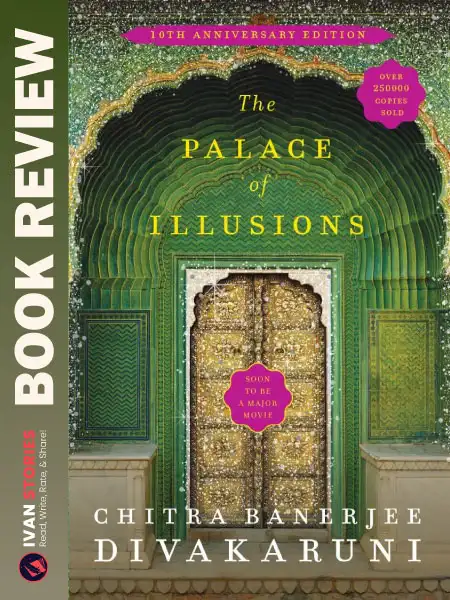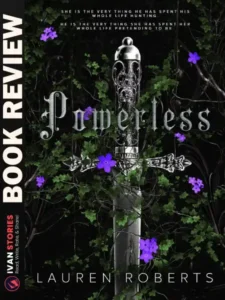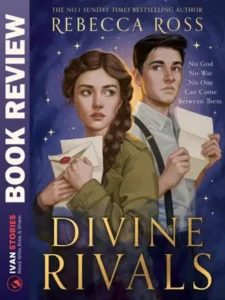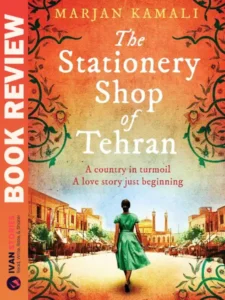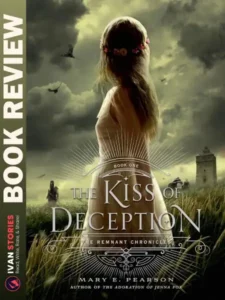Book Details
|
|
|
Author
Chitra Banerjee Divakaruni |
|
| Country | United States |
| Language | English |
| Published | February 12, 2008 |
| ISBN | 9780385515993 |
| Pages | 384 |
Genre:
Fiction, Mythology, Fantasy, Historical
Story Setting:
Ancient India, Mahabharata era
What To Expect:
Mythology, War, Feminism, Drama
Readability:
Medium-Paced, Philosophical
Book Review
Chitra Banerjee Divakaruni’s The Palace of Illusions provides a fresh and captivating retelling of the great Indian epic, Mahabharata, but from an unexpected perspective—that of Draupadi (known as Panchaali in the book). From her extraordinary birth in fire, Panchaali navigates a world of politics, war, and betrayal, standing beside her five husbands, the Pandavas. Throughout the novel, the weight of her fate as a queen, wife, and pawn in a monumental battle looms large. Her friendships, especially with the enigmatic Krishna, and her secret feelings for Karna, the Pandavas’ sworn enemy, add emotional depth to her story. Panchaali’s voice, which is often silenced in the traditional retelling, takes centre stage here, revealing a woman of remarkable resilience, intelligence, and flawed humanity.
Character Exploration
Panchaali is an unforgettable protagonist, full of contradictions—bold and determined, yet conflicted and vulnerable. Divakaruni deftly portrays her struggles, from enduring a polygamous marriage to facing the shame and fury of being gambled away by her husbands. The novel’s greatest strength lies in this complex character portrayal. Panchaali is not depicted as a saint or a mere victim; rather, she is a fierce woman who takes destiny into her own hands, even when those hands are tied by societal expectations. Her simmering attraction to Karna humanises her further, exposing the heartache of unfulfilled desire, a universal emotion that resonates deeply. At times, her choices make her less likeable, but they also make her more relatable, highlighting the inner turmoil of a woman caught in the epic crossfire of history.
Main characters like Krishna, being himself have his way of even outing Panchaali’s impulsive nature. Their conversations, laden with philosophical depth, are among the most memorable parts of the book, revealing the nuances of fate, duty, and human limitation.
Divakaruni’s Writing Style
Divakaruni’s prose is elegant and evocative, though it leans towards the philosophical, requiring readers to engage with it at a deeper level. The narrative pace fluctuates, with moments of intense action—like the great battle of Kurukshetra—punctuated by introspective passages where Panchaali reflects on her life and choices. This may slow the story down for some readers, but for others, it provides a rich tapestry of emotions and thoughts to explore. The book’s language, though occasionally dense, is poetic, enhancing the mythic atmosphere Divakaruni seeks to evoke.
Her ability to blend historical myth with modern sensibilities is striking. Panchaali’s voice, while rooted in an ancient world, feels surprisingly contemporary, especially in its feminist undertones. She’s not content with her prescribed role as a wife and queen; she questions, fights, and rebels against a system that seeks to diminish her. Yet, in a world dominated by men and gods, her rebellion is subtle, often internal, and shaped by her sharp intellect rather than overt defiance.
Emotional Impact and Reflections
What struck me most about The Palace of Illusions is how personal Panchaali’s story feels. Despite being set in an epic world filled with gods and heroes, the novel remains deeply grounded in human emotions—regret, love, jealousy, and yearning. The chapters where Panchaali contemplates her love for Karna or her complex relationship with her husbands are emotionally resonant, drawing the reader into her inner world. I could feel her as she showed raw emotions. Her struggles as a woman, unable to fully control her destiny, are universal, making this ancient story profoundly relevant today.
At the same time, some of the gender dynamics felt limiting. The portrayal of women as nurturing and men as warriors plays into traditional stereotypes, and I wish Divakaruni had challenged these roles more vigorously. Panchaali’s strength lies in her intellect and emotional resilience, but at times, I felt the narrative boxed her into predefined gender roles, especially when her motherhood was framed in ways that felt judgemental.
Final Thoughts
The Palace of Illusions is a beautifully written and thought-provoking novel that sheds light on one of mythology’s most fascinating yet overlooked characters. While it occasionally falls into predictable patterns regarding gender roles, it offers a compelling, humanised portrayal of a woman who defies both men and gods. For readers intrigued by mythology or seeking a feminist re imagining of classic tales, this book is a must-read. However, its philosophical tone and slower pace might not appeal to those looking for fast-paced action.


